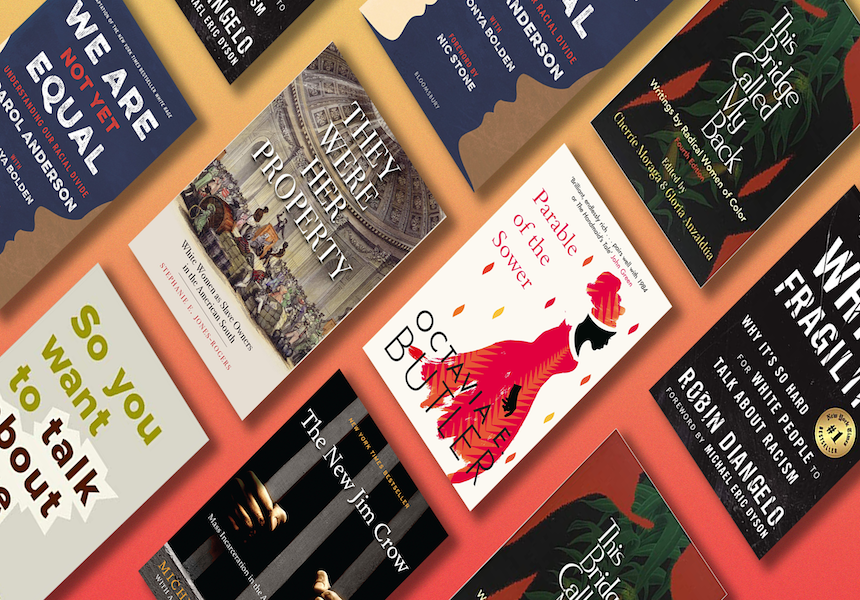15 Best Satire Books On Race, Gender, And Society
What factors contribute to the best satire books? Satire is the use of irony and humor to demonstrate how something (a person, community, nation, etc.) is stupid and bad. It differs from comedy in that comedy can be something that makes you laugh with or without social commentary. It also usually has an over-the-top element that elevates it from comedy to satire.
That's the problem with satire: people sometimes believe you're serious about what you're saying rather than serious about what you're mocking.
Here is my list of the top 15 satire books. The concept of "best" is, like everything else, subjective. I chose works that I wanted to highlight while excluding some of the most well-known, such as Kurt Vonnegut and Joseph Heller. They are in their right masters.
"The Life And Opinions Of Tristram Shandy, Gentleman" By Laurence Sterne
This is an experimental novel from the 18th century about Tristram Shandy, who tells the story of his life...sort of. It's a difficult book to summarize, but I'd classify it as a satire on education, literature, and philosophy. It's all over the place, jumping forward and backward in time — so much so that the book includes a pictorial representation of the plot near the end that's a giant squiggle. It's a strange and unique book that is truly out of time.
"The Invisible Man," Ralph Ellison's
Invisible Man, winner of the National Book Award and widely regarded as one of the most important books of the twentieth century, follows a young unnamed black man as he travels through the nightmarish American landscape from the South to the North. The book exposes racial dynamics in the United States through surreal and perplexing encounters. It may have been written in 1952, but it is still relevant today.
"The Transportable Dorothy Parker" Described By Dorothy Parker
Parker is a great American writer known for her razor-sharp wit and commentary. This book contains a selection of her short stories, essays, poetry, and other works. "The first thing I do in the morning is brushing my teeth and sharpen my tongue," she once said. Her incisive writing exposes many of America's contradictions, whether fiction or nonfiction.
"The Posthumous Memoirs Of Brás Cubas By Joaquim Maria Machado De Assis," Translated By Gregory Rabassa
There aren't many books dedicated to the worm decomposing the author's body, but here we are. Brás Cubas, written in 19th century Brazil, tells the story of his life with biting commentary — after all, he's dead. He interrupts himself at various points, once recounting a bizarre dream about riding a hippopotamus. It's a parody of nineteenth-century Brazil and society's mindless adherence to traditions.
Reinaldo Arenas's, "Angel Graveyards"
This is Arenas' retelling of the classic 1839 Cuban story Cecilia Valdes, about a mixed-race Cecilia who falls in love with a wealthy aristocrat who betrays her. Arena's version tells the story from various perspectives. It's a satire of the original work, full of racial and gender dynamics, but Arenas generally puts his spin on the tragic love story or the love story.
Oyinkan Braithwaite's "My Sister, The Serial Killer"
Korede is constantly cleaning up after her sister Ayoola's murders. So far, there have been three. She could call the cops, but she's related, right? But things may change when her sister falls for Korede's crush. It plays with the format of a crime novel and the idea of what we are willing to do for our families.
Naomi Alderman's "The Power"
The premise of this book is that one day, women discover they can shock people with their hands. The story follows various characters, including an American politician, a foster child, a girl from a criminal family, and others. It is not an empowering story about women's liberation but a dark reflection on how things never truly change.
Hilary Leichter's "Temporary"
This book delves into the absurd world of work. The narrator is a temp worker who bounces from job to job, working as a pirate, assassin, and witch's assistant, all searching for that elusive performance. It's a satire on how employers demand more and more from their employees in exchange for little in return.
Kelly Sue, "Deconnick, Taki Soma, Valentine De Landro, Robert Wilson Iv, And Others In Bitch Planet"
While Bitch Planet is a dystopian three-book graphic novel (two trade books and one short story collection), it's an incredible exploration of gender dynamics. Women who violate their patriarchal gender roles are labeled nonconformists and imprisoned indefinitely on a prison planet. Anything from not being the perfect mother to refusing your boss's advances can land you on Bitch Planet. The Handmaid's Tale by Margaret Atwood has been compared. Unfortunately, it seems to be becoming more and more relevant in our day and age.
Fyodor Dostoevsky's "The Idiot"
"Idiot" is Fyodor Mikhailovich Dostoevsky's fifth novel. From January to February 1869, the novel was first published in the journal "Russian Herald." It is one of the writer's most beloved works, fully expressing Dostoevsky's moral and philosophical position and artistic principles in the 1860s. The novel "Idiot" became a realization of Dostoevsky's old creative ideas; his main character, Prince Lev Nikolayevich Myshkin, is described by the author as "a truly wonderful personality," the embodiment of goodness and Christian morality.
And precisely because of his disinterestedness, kindness, and honesty, as well as his extraordinary love for people in the world of money and hypocrisy, Myshkin's surroundings label him an "idiot."
Miguel de Cervantes' "Don Quixote"
Satire comes in all shapes and sizes, but since I'm a novelist, let's return to what is arguably the world's first novel. What's more, guess what? It's a parody! Transitional societies provide fertile ground for satirists, with creaking traditions upheld by self-righteous buffoons, opportunists on the rise, and nostalgia for cruelties fondly reimagined as kindnesses. The medieval worldview of Old Spain is crumbling in the early seventeenth century, and Cervantes helps it along with a powerful kick up the backside.
Samuel Shem's "The House of God"
This book was given to me as a medical student by a well-meaning (or possibly satanically mischievous) relative who happened to be a nurse. My God! It was like being brought to the TRUTH wall of fire and having your eyes held open by a pair of red hot toothpicks. Extreme situations bring out the worst in people, and few situations are more extreme than the first years of a doctor's career. Shem's novel, set in a lightly disguised Boston hospital of high repute, delves deep into the agony of absurdity.
Jaroslav Hasek's "The Good Soldier Svejk"
Hasek's opus, which dates from the world war preceding Heller's, is another satire forged from the experience of mass ranks of men hacking each other to death. While Heller's main character, Yossarian, struggles to outwit the system that puts him in danger, knowing full well that he can't, Hasek's hero, Svejk, responds to the same blind, deafening brutality of the military machine with displays of incompetence and idiocy so profound that they amount to genius, exposing the futility of this conflict, of all conflicts.
George Orwell's "Animal Farm"
Orwell pitched his Aesopian masterpiece to his publisher as "a little squib that might amuse you," but the 1940s publishing establishment was not amused. The book's journey from one politically hostile publisher to another before the Cold War made its anti-Stalinist message acceptable is satirical in and of itself.
Thirty-thousand words, proof that the punch's power is inversely proportional to the book's length in the right hands. Animal Farm... Bow down and tremble, satirists, in the presence of greatness.
Stefan Heym's "King David Report"
An authoritarian regime rewriting history to suit its ends? Certainly not! East German dissident Stefan Heym mocked his government's habit of inventing the past by imagining a biblical forefather, Ethan the Scribe, being paid to clean up King David's bloody record and make him appear noble and heroic as... well, King David.
That story about Absalom getting caught in a tree and then being found by David's most trusted general, who then kills him against David's express wishes, who wouldn't have harmed a hair on his beloved son's head? That is precisely what happened. Honest.
These are just 15 of the best new and old satire books that make fun of and criticize our lives through exaggeration, irony, and other means. Are you looking for more satire? Check out these satirical novels and this essay on satire comprehension.







